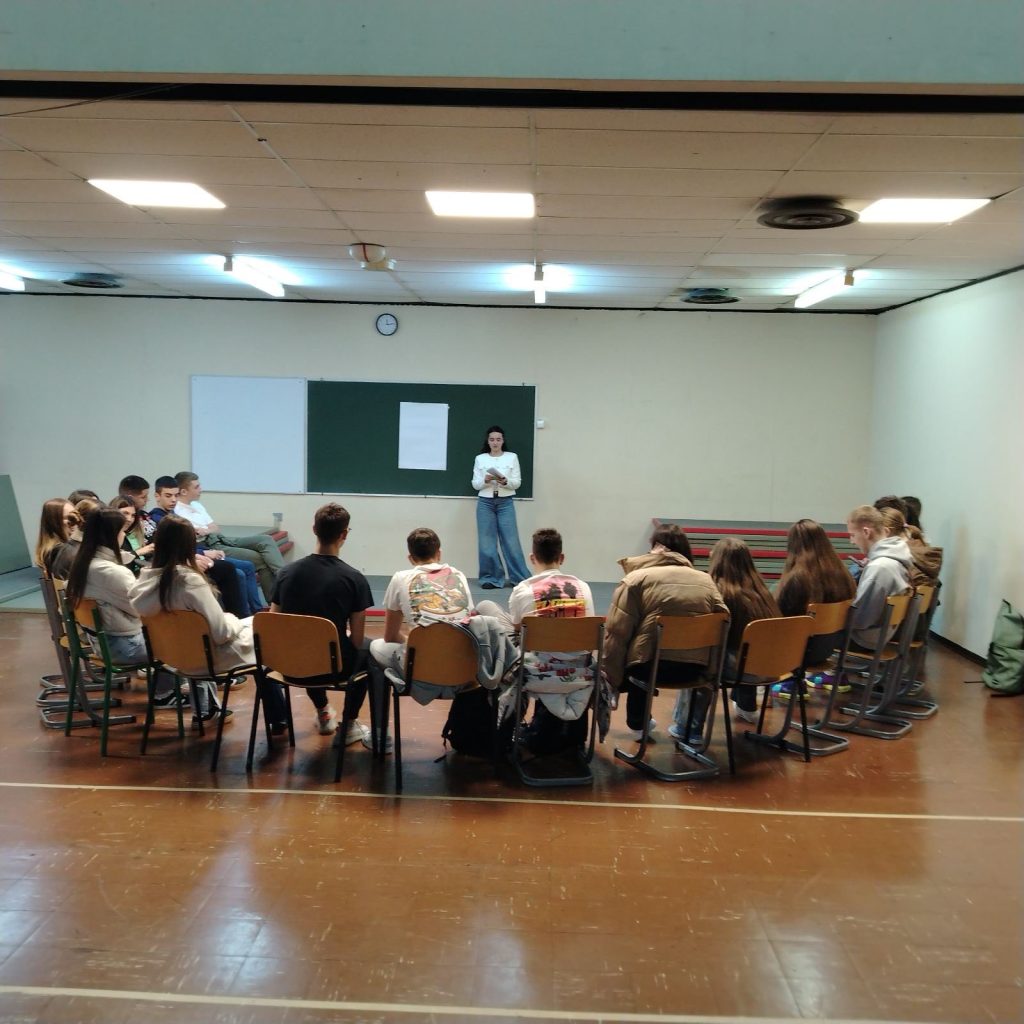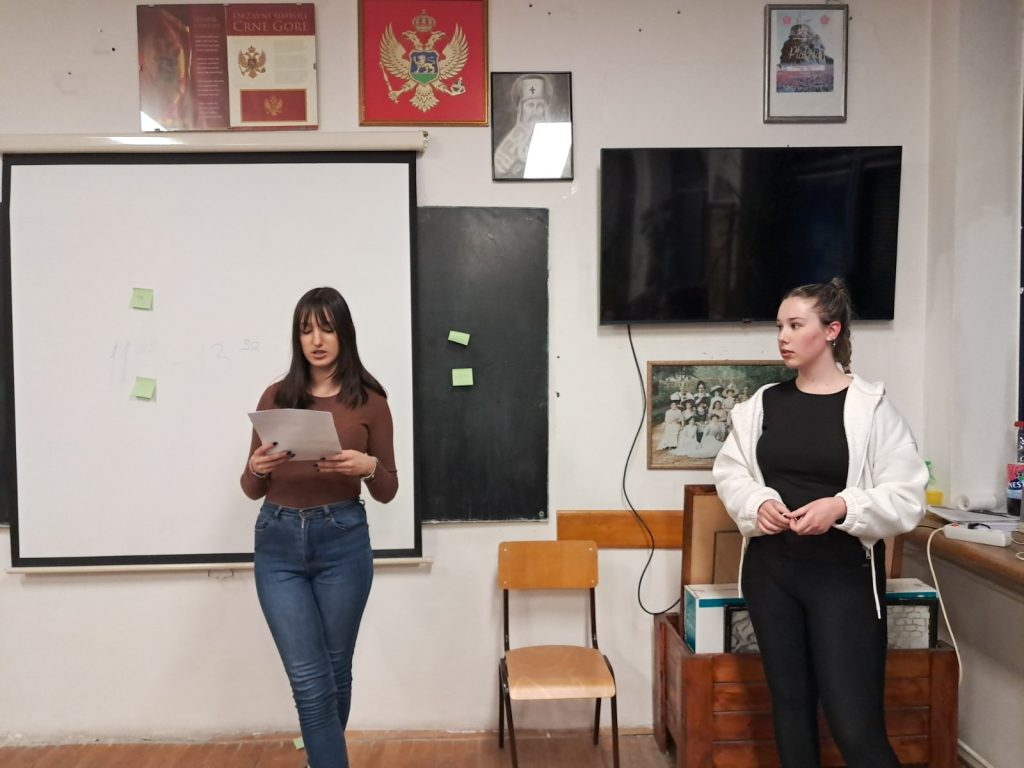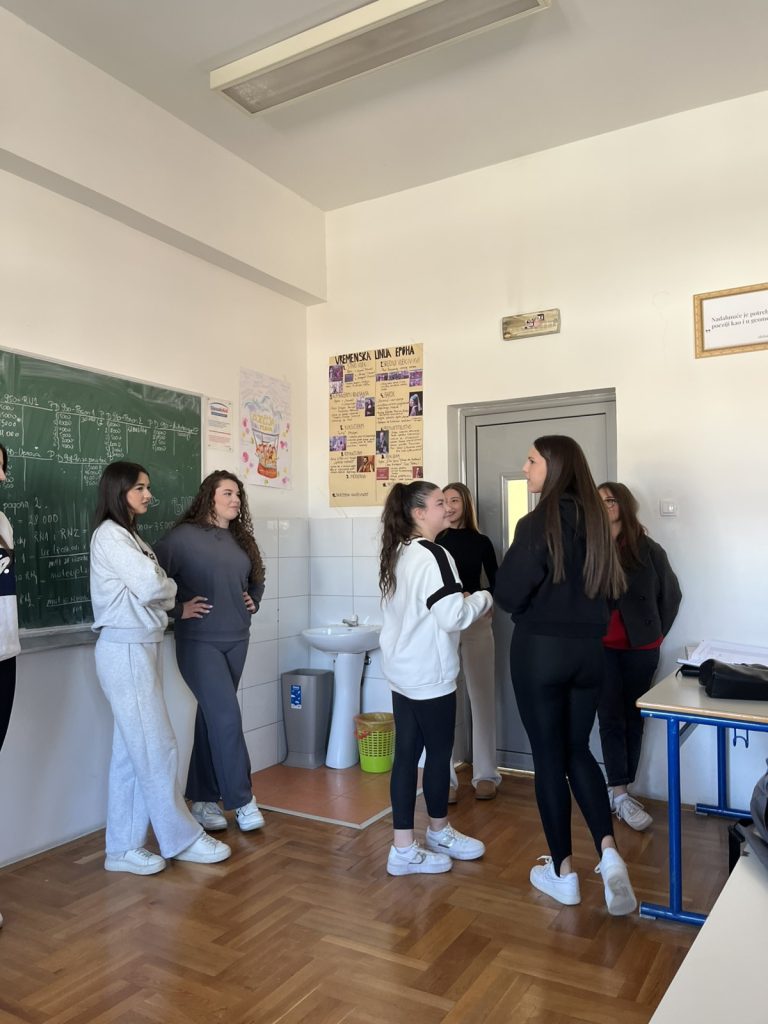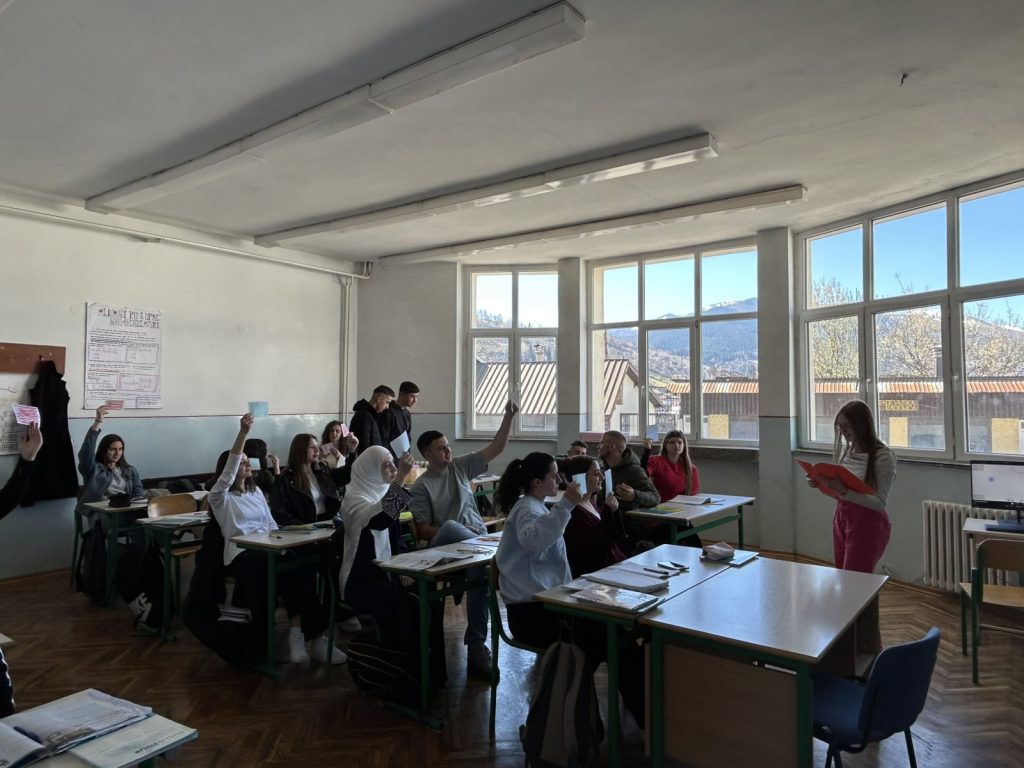After the completion of the Intercultural Camp organized by the Centre for Civic Education (CCE), high school students from different cities conducted a series of peer-to-peer workshops in Podgorica, Kotor, Nikšić and Plav, addressing key topics for youth development – from gambling addiction, stereotypes and radicalization, to the role of authority and recognizing toxic relationships.
“The workshop we organized in cooperation with CCE helped students understand the dangers posed by some of the current problems we face. Everyone actively participated in the discussion. I am especially glad that at the end of the session, they applied what they learned and recognized the dangers of gambling addiction among youth, which was our main focus”, shared Anđela Popović, a student of the Gymnasium Kotor, about the workshop she led.
Manja Perić, a student at the Secondary Economic School “Mirko Vešović” in Podgorica, also believes that peer education is an excellent way to increase youth engagement. “Students were more active than during regular classes – they expressed their opinions, made an effort to participate and improve their knowledge, and showed a strong desire for more sessions like this. As peer educators, we were very satisfied, and this experience motivated us to continue educating youth on topics that are often overlooked”, she said.
“These workshops are extremely useful, and should be organised more often, as they encourage reflection on issuesthat are often present in society but rarely analyzed in depth within school curriculum. Through examples of radicalization and stereotypes from the past, young people learn to identify them in the contemporary context and develop much-needed tolerance and empathy”, said Helena Vojvodić, a student at the “Stojan Cerović” Gymnasium in Nikšić.
Radojka Rajković, a student at “Bećo Bašić” Secondary Mixed School shares a similar view. “As peer educators, we are pleased with how the workshops went – they demonstrated that this approach has a positive impact on students. These experiences inspire us to continue researching and acting towards solving problems we recognize in the education system, because we want schools that better understand the needs of young people”, she emphasized.
These workshops are part of the project HEART: Helping Empowerment and Resilience for Today’s Youth, implemented by CCE with the financial support of the EU Delegation in Montenegro and co-financing from the Ministry of Public Administration.
Marlena Ivanović, Programme Associate




